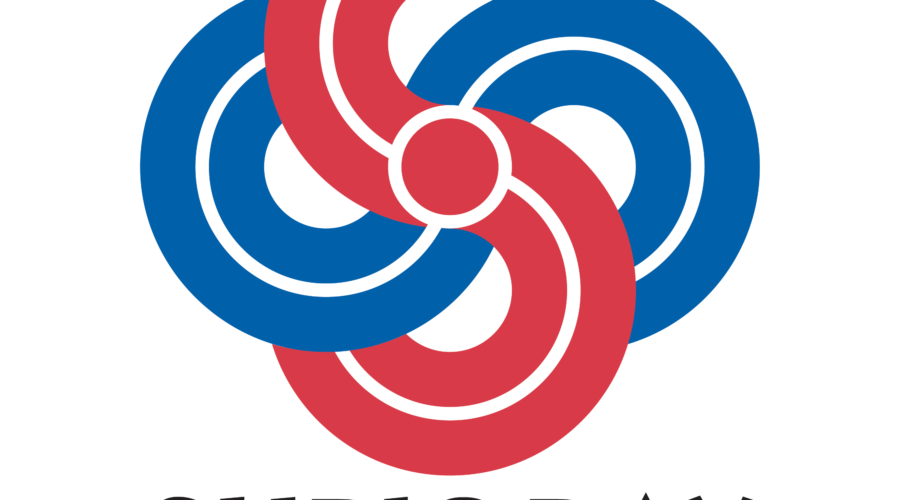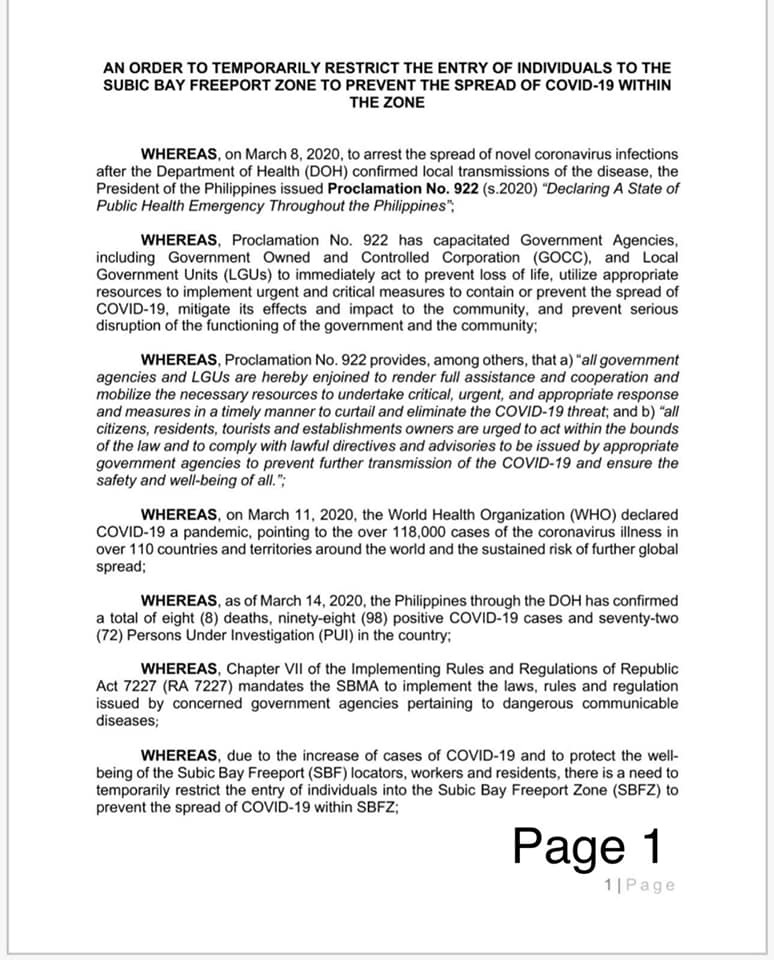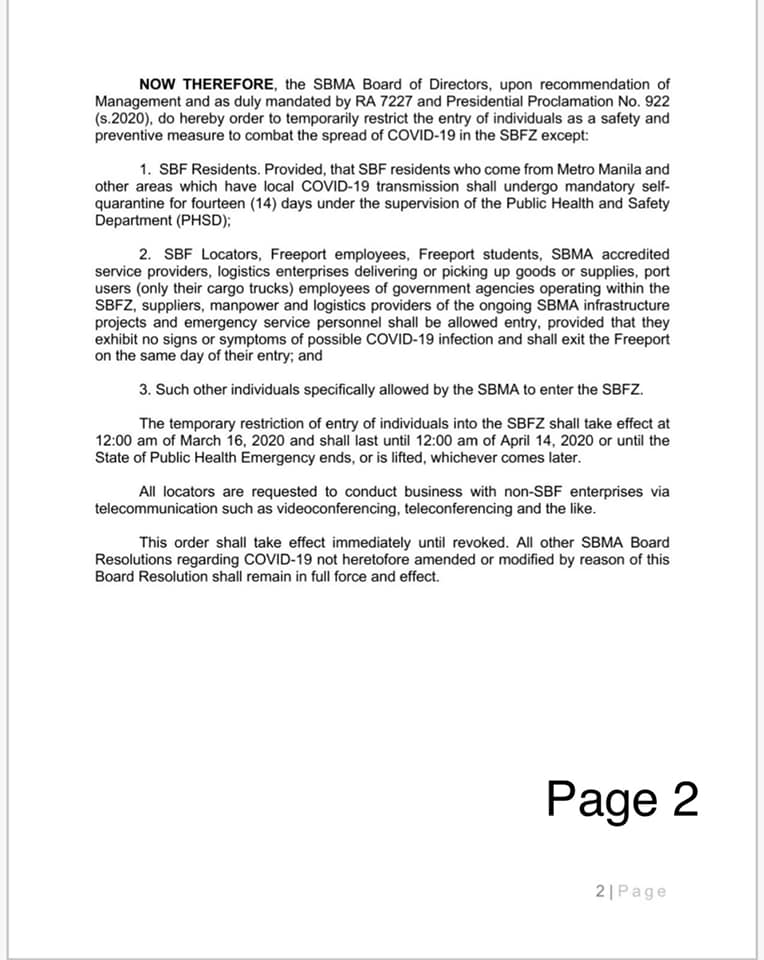14 March 2020
SBMA to restrict Freeport entry to check COVID threat
SUBIC BAY FREEPORT — Officials of the Subic Bay Metropolitan Authority (SBMA) have ordered temporary restrictions in the entry of persons to the Subic Bay Freeport Zone to prevent the spread of the new coronavirus disease (COVID-19) within the zone.
SBMA Chairman and Administrator Wilma T. Eisma said the order was unanimously approved by the members of the SBMA board of directors late Saturday in response to an immediate need to protect the safety and well-being of stakeholders in the Subic Bay Freeport in face of increased COVID-19 infection in nearby areas.
She said the entry restrictions will be effective for about a month, starting 12:00 a.m. on Monday, March 16, until 12:00 a.m. of April 14, or while the State of Public Health Emergency declared by Malacañang is in force.
“I know that this is a bitter pill to swallow, as it would hugely impact on business operations in the greater Subic Bay area. But the welfare of everyone in the community should always be our primary consideration,” Eisma stressed.
“The entry restrictions serve as a safety and preventive measure to check the spread of COVID-19 and minimize the danger of infection that each of us face today,” she added.
While the SBMA order temporarily restricts the entry of individuals into the Freeport, Eisma said the agency had identified exceptions who would be allowed to get in, among them Subic Bay Freeport residents.
Eisma said the SBMA ruled, however, that SBF residents who come from Metro Manila and other areas with local COVID-19 transmission should undergo mandatory self-quarantine for 14 days under the supervision of the agency’s Public Health and Safety Department (PHSD).
She said that SBF locators, employees, and students will be allowed entry provided they exhibit no signs or symptoms of possible COVID-19 infection and that they shall exit the Freeport on the same day of their entry.
This guideline applies as well to accredited service providers, logistics enterprises delivering or picking up goods or supplies, port users, employees of government agencies operating within the SBFZ, suppliers, manpower and logistics providers of ongoing SBMA projects, and emergency service personnel.
Eisma said the SBMA began enforcing health safety measures early last month when the coronavirus outbreak was spreading from China into other countries. These measures included a temporary ban on the entry of persons, vessels and aircraft coming directly from COVID-hit countries and thermal scanning and screening at Freeport gates.
Last week, the SBMA began disinfection protocols and enforced a one-door policy in SBMA offices after local transmission of COVID-19 was reported in Manila.
Meanwhile, Eisma urged all Subic business locators to conduct business with non-SBF enterprises via videoconferencing or teleconferencing, and encouraged SBMA clients to submit documents online to minimize personal contacts.
“These measures, like frequent handwashing and maintaining proper hygiene, may seem puny at first, but these actually enable us to keep safe and to be strong for others,” Eisma pointed out.
“Our system might be deficient and we might be ill-prepared for an emergency like this, but if we cooperate and support each other and exercise malasakit for our community, then we can survive this ordeal,” she added. (30)








